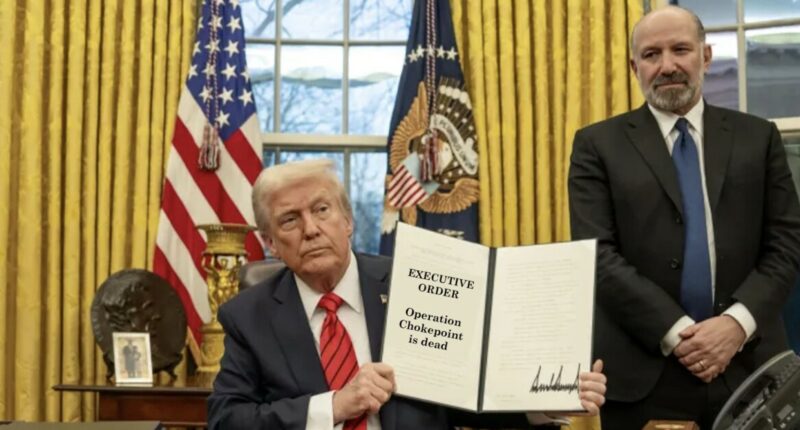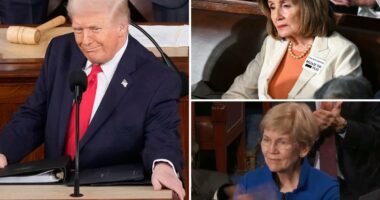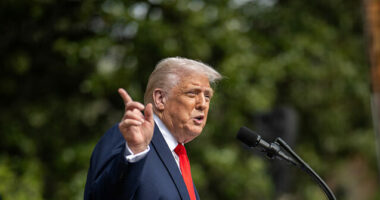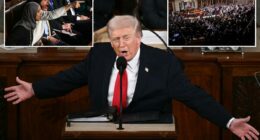Share this @internewscast.com
By Jason Meyers
President Trump is preparing a draft executive order to eliminate obstacles preventing the widespread use of digital assets. This proposed order plans to impose significant fines on banks that discriminate against crypto firms and those with conservative views. The measure aims to “open the spigots” throughout the U.S. banking system, promoting the easy flow of value between digital and traditional financial systems, especially in the issuance, redemption, and transfer of stablecoins.
The GENIUS Act is crafted to promote innovation in blockchain technology and digital currencies while boosting national economic competitiveness. However, there are concerns about possible hindrances in the financial sector. Some critics argue that banks’ reluctance to deal with crypto-related businesses, due to “reputational risks” or regulatory pressures, might obstruct the Act’s goals. The draft executive order targets these challenges by instructing federal regulators to scrutinize banks for violations of laws such as the Equal Credit Opportunity Act, antitrust statutes, and consumer protection regulations.
As per a draft of the order reviewed by The Wall Street Journal, financial institutions engaging in “de-banking”—terminating or restricting services based on political or ideological reasons—could face financial penalties, consent decrees, or other disciplinary measures. The draft authorizes agencies like the Federal Deposit Insurance Corporation (FDIC), the Office of the Comptroller of the Currency (OCC), the Department of Justice (DOJ), and the Small Business Administration (SBA) to investigate allegations of discrimination. The SBA would specifically examine how banks manage loan guarantees, crucial for crypto startups and conservative nonprofits hoping to secure capital.
The draft builds on prior administration efforts, including a January order that removed regulatory barriers for blockchain businesses and tackled “Operation Chokepoint 2.0,” where regulators reportedly urged banks to sever ties with crypto firms.
Potential Effects on the Crypto Ecosystem
If enacted, the executive order could have broad effects, potentially transforming the landscape for digital assets in the U.S. By requiring fair access to banking services, it could open up significant opportunities for crypto companies that have historically encountered account closures and limited integration with traditional financial systems. Industry leaders and analysts see the draft as a possible “turning point” that might drive major banks to support cryptocurrency businesses, reducing debanking practices and promoting greater institutional involvement.
A major area of impact would be the stablecoin industry. Stablecoins serve as a bridge between traditional currencies and blockchain networks, relying on efficient banking channels for issuance and redemption. This is in line with the GENIUS Act’s emphasis on U.S. leadership in digital innovation, as unrestricted banking access for crypto firms could boost liquidity and institutional investment and potentially increase demand for US Treasuries, leading to lower interest rates.
Eric Trump has discussed his experiences with account closures highlighting the political underpinnings of such practices and emphasized the need for merit-based opportunities. Binance Founder Changpeng Zhao, “CZ” has similarly praised the draft as a directive that could prevent unjustified service restrictions by banks.
On a broader scale, the order could boost investor confidence, potentially benefiting all crypto assets through increased institutional involvement which might gain smoother access to banking infrastructure, enhancing overall market liquidity as barriers diminish. However, banks have justified past actions as compliance-related, pointing to risks like money laundering and regulatory oversight. Are there other motives?
Reactions and Future Outlook
The crypto community has reacted positively to the draft, seeing it as part of President Trump’s pro-crypto stance, which includes ideas like incorporating Bitcoin into 401(k) plans and establishing a strategic Bitcoin reserve. Senate Banking Committee Chairman Tim Scott has accused regulators of targeting individuals they “just don’t like,” fueling demands for accountability.
SEC’s Project Crypto is an effort that modernizes regulations and paves the way for full on chain migration enabling instant settlement of digital securities against stablecoins, boosting efficiency and liquidity. The Trump order, if signed, would further optimize bottlenecks across the entire US financial system.
When you examine the migration effect on banks, this adds substantial velocity to the staggering $327 trillion total value encompassing $62 trillion in equities, $55 trillion in debt securities, and $210 trillion in notional derivatives. On-chain migration would also save banks over $500 billion in annual operational costs, raising additional questions about the true motive behind Operation Chokepoint 2.0.
Should President Trump sign the order, regulators would likely initiate investigations swiftly, with the DOJ’s task force on illegal debanking playing a central role. While the full effects remain speculative until signing, the proposal marks a significant step toward tokenizing the financial system and fulfilling his promise to make America the crypto capital of the world.

















